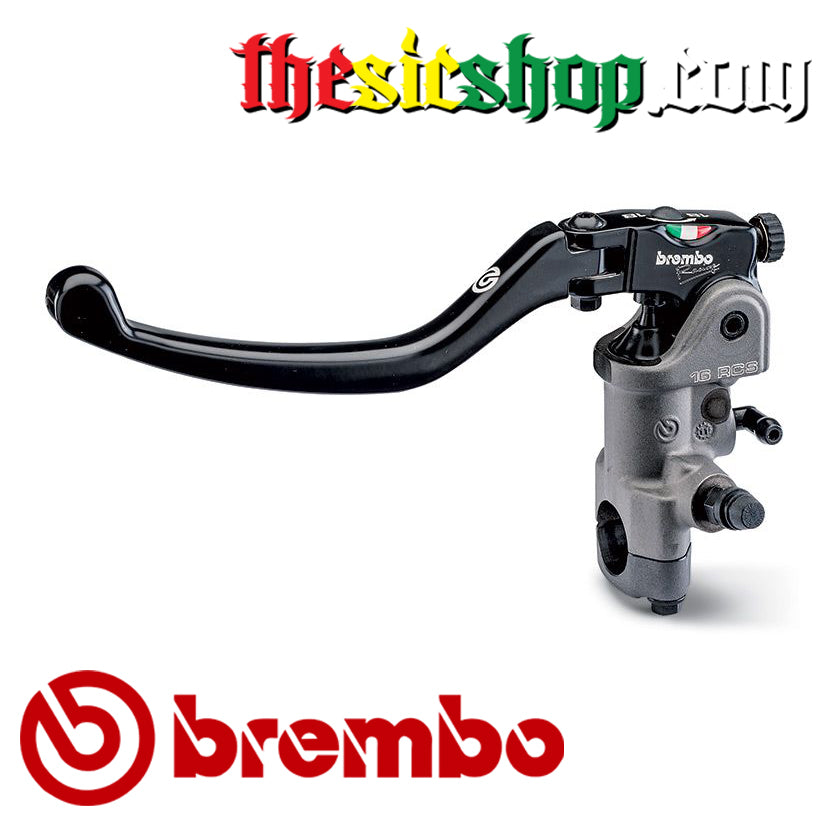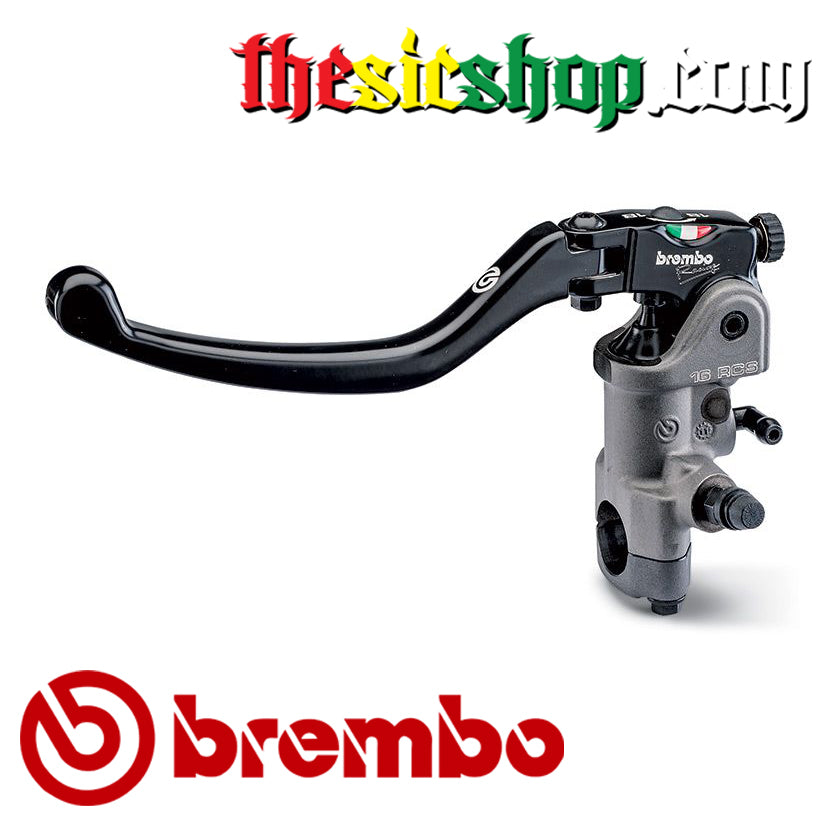Brembo
Brembo 14RCS LEFT Radial Master Cylinder
Brembo 14RCS LEFT Radial Master Cylinder
Couldn't load pickup availability
Brembo 14 RCS Adjustable Ratio Radial Brake Master Cylinder - Adjustable ratio 14/18 (14x18 or 14x20) - A 14x18 and 14x20 master cylinder in one! - Folding lever for mitigating crash damage - Designed for 7/8" sportbike handlebars - Forged body - For all custom bikes with 1 fixed 4 piston caliper Brembo Radial Master Cylinders are found on the fastest bikes in the world because they're powerful, reliable and built to exacting tolerances for consistent performance under a wide range of conditions.
Brembo's 14 RCS master cylinder is no exception. It offers the unique ability to change brake lever ratios from 14x18 (for power) to 14x20 (for feel) with a simple turn of the screw, something not possible on other Brembo brake master cylinders. The 14 RCS is manufactured using a combination of forge-casting and CNC-machining. Forged parts have a particular advantage over parts machined from billet when it comes to strength since the metal's grain structure follows closely the shape of the part as it is pressed into its final form. After forging, the aluminum master cylinder blank is then machined to accept all of its hardware: banjo bolt, brake reservoir spigot, lever attachment and - most critical, the brake piston assembly. This multi-stage manufacturing process ensures both strength, through the forging process and precision via CNC finishing - both of which contribute to the master cylinder's consistent, exacting performance that has made it the "must have" brake upgrade component.
Every Brembo 14 RCS master cylinder comes complete with a break-away lever for crash survivability, a banjo bolt and crush washers. To activate the rear brake light, you will need to buy a separate pressure-sensitive banjo bolt switch.

Collapsible content
HAND BRAKE MASTERS EXPLAINED
The numbers refer to millimeters - the first number is the bore diameter size (area that pushes the fluid), the second number is the pivot distance between the pistons push rod center and the pivot center.
The main difference in master cylinder size as it relates to our use: - 19 and 20 mm masters are typically used to drive (2) four piston calipers - 16mm are typically used on a single four piston caliper (some bikes only have 1 disc) - 13mm is typically used on a one or two piston caliper This is due to the amount of fluid that the master's bore is designed to move to the calipers.
What does this mean to us? well, for handbrake purposes, you would match the master size to the handbrake caliper size as appropriate or choose a different size based on the feel that you are looking for. i.e. A Large master used on a small caliper will have a very hard feel with little lever travel as it is trying to move a lot of fluid and has nowhere to move it to. Conversely, if you used a 13mm master with a four piston caliper, you will have a very soft lever with lots of travel (which some may like better as its more variable control).
When talking about the 'feel' of the brake system, the key to the whole issue is the master cylinder piston size. - Smaller will give higher psi at the calipers, but will have more lever travel. - Same size will do the same psi as your input. - Larger will have less psi at the calipers with less lever travel, so to get equal power you have to squeeze harder. The lever ratio will play a factor too. The length of the lever from the pivot to the plunger rod as compared to the length of the lever where it is gripped will make a difference too.
Simple sizing explanation: Basically the master holds a certain amount of fluid and the caliper does as well. If that amount doesn't match it will change the feel of the lever. So if the master holds a lot and the caliper hold a lot less, when you squeeze the lever, it tries to move a lot of fluid with no where for it to go so the lever moves a small amount and gets hard fast and requires more pull effort from your hand. If the master is smaller than the caliper fluid capacity the opposite occurs where you have a lot of lever travel to move enough fluid to fill the caliper.

